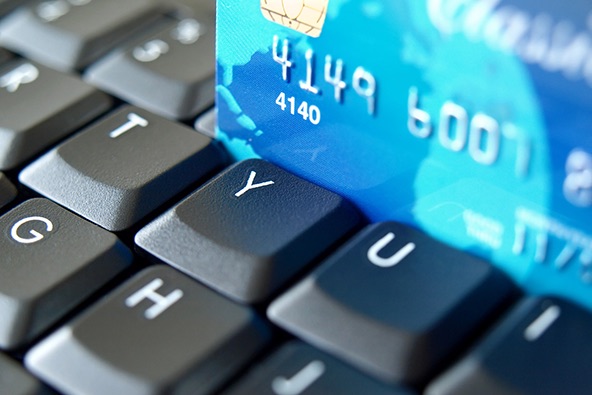During the course of their lifetime, over 50% of small businesses fall prey to fraud. This is a surprisingly high number of small business owners losing money to the tune of over $115,000 per instance.
Credit card fraud, identity theft, and telephone frauds are the most common type of scams that E-commerce companies fall prey to but how can you as a small business owner protect yourself from fraud? We are here to answer just that. Read on to find out how you can protect your online store from E-Commerce fraud.

1. Use SSL Authentication and Ensure your Website is PCI Compliant
Web-based attacks are on the rise and over 30% of customers have been the victim of an attack. To secure the data link between your online store and your customer always ensure you are using the necessary security measures like having an SSL certificate on your website which shows a green padlock in the URL which assures your customers that the transaction is completely safe and encrypted.
PCI DSS exists to safeguard you and your consumer, and you should always ensure that your E-Commerce store is PCI compliant. You can also outsource this process to outside vendors who specialize in ensuring your websites stay PCI compliant.
2. Make stronger passwords mandatory
Most online frauds happen because hackers can take over user accounts and make fraudulent purchases from them. To prevent this, require stronger passwords for all accounts. A strong password must be at least 8 characters long and include alphabets (A-Z), numbers (0-9) and a Special Character like # or @.
Using Passphrases instead of passwords also helps you secure the accounts of your users, but this may irk some of your customers.
3. Have systems in place to save yourself from DDoS attacks
DDos (Distributed Denial of service) attacks are commonplace in the E-Commerce industry and you should ensure you aren’t the one bearing the brunt of it. Have sufficient plans in place to mitigate the risk and ensure you use a service like Cloudflare to protect yourself from it. Hackers are getting smarter in the ways they execute the DDoS attacks. Ensure that you are always one step ahead of them and have proper systems in place to be safe from them.
4. Use National Cellular Directory as a tool for business intelligence
If you run a B2B E-Commerce company which has high volume and ticket values and where you deal with people who may be located anywhere in the world you need to ensure your clients are genuine. You can accomplish this by using business intelligence tools such as
5. Monitor Transactions and use a 3rd party payment gateway when possible
If you receive payments from fraudulent sources, you may be liable to bear the loss for the chargebacks of the transaction and hence you should keep an eye out on your daily transactions at least from a birds-eye angle.
You can also outsource your transactions to a 3rd party payment gateway like PayPal who are well established in their fields. This reduces risk on your end and allows you to focus on things you do best. 3rd party payment gateways may be a little expensive, but it takes over a lot of the hassle involved with handling and managing transactions.
6. Require Credit Card Verification (CVV) and use address verification systems (AVS)
Most of us are familiar with the VCC number we find at the back of our cards which is usually 3 or 4 digits, ensure that every transaction requires the users to input the VCC number to save yourself against fraudulent payments. Similarly, using the AVS to match the credit card number to the geographical location will safeguard the customer as well as you from being scammed.
7. Host your website in secure environments and with Reliable Web Hosting Providers
Avoid any kind of shared hosting if you wish to grow your E-Commerce store. One compromised website on shared hosting can compromise other websites on that server as well. Ensure that you use a dedicated server or a VPS from one of the more prominent names in the industry like Amazon AWS or Google Cloud.
If you are outsourcing the hosting duties to a dedicated 3rd party vendor makes sure they keep daily backups in case something goes wrong and use a vendor that is using only the latest hardware and software.
8. Keep all your Software Updated at all time
Any software or platform which you are using should always be kept up to date. It is important to have the most recent security patches and bug fixes so that a hacker can’t get to your E-Commerce store.
9. Have Systems in place to alert you about suspicious activity
If you feel any kind of suspicious activity taking place on your site investigate immediately. Use 2FA authentication and employee authentication tags to ensure no outsider can gain access to your internal systems.
Some key indicators of frauds are
- Different IP and corresponding delivery address
- Unusually high quantity of order
- Mismatch of Delivery address and card issuers bank
- Multiple orders to the same address from different IPs
- Multiple orders to the different address from the same IPs
- Unusual timing of orders
10. Don’t Store Sensitive Information and always have Backups ready
If you don’t store any sensitive information on your servers, your customer database won’t be compromised. This will help you in reducing your overall risk liability as well as save you from a PR fallout.
You must also maintain backups and have systems in place to secure you in case something does happen. It may require a little bit of upfront investment but will save you in the long run.
So, this was our guide on how you can safeguard yourself against E-Commerce fraud and protect your online store. We hope this article helps you in establishing a stronger e-commerce business.



